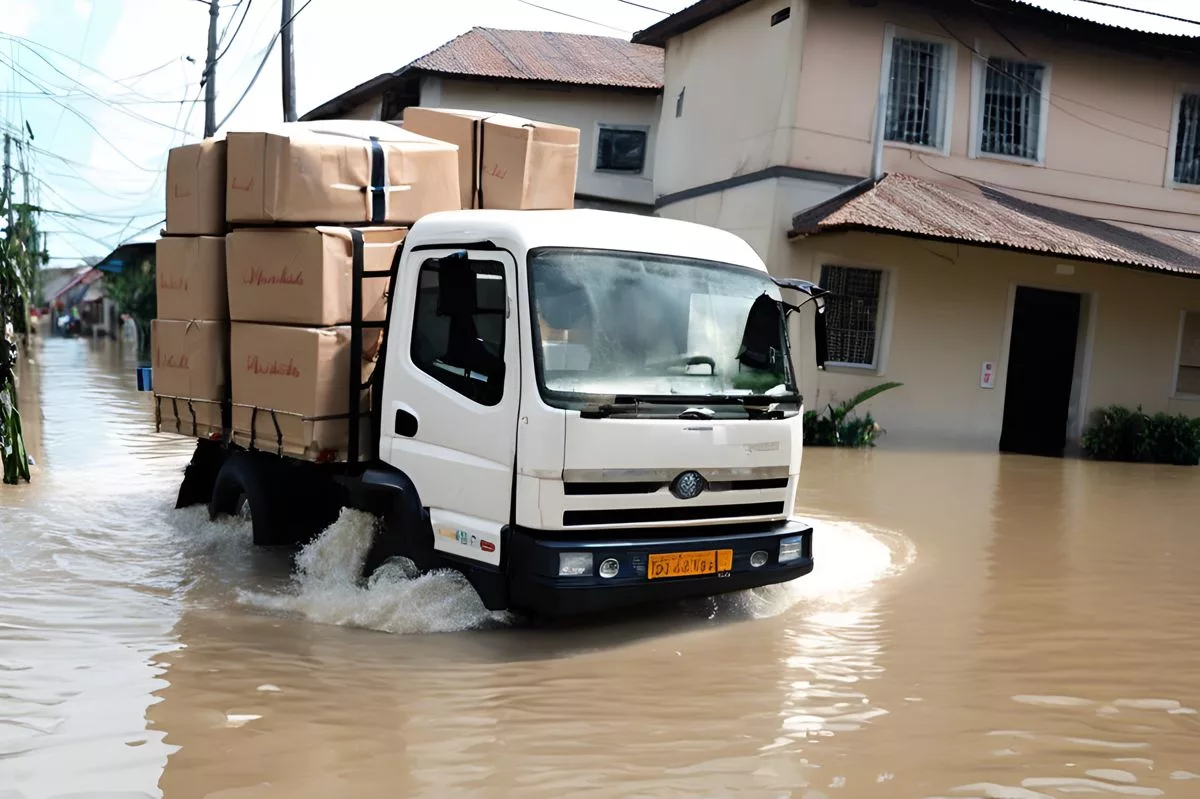Cape Town is facing a dire situation with natural disasters impacting its residents and putting a strain on teams responsible for providing support. Despite collaborative efforts with NGOs, limited resources are impeding relief efforts, leading to urgent calls for emergency funding to be decentralized to the city. Multiple regions have been affected, and the city’s resilience is shining through as they continue to work tirelessly to help those in need. Donations and reporting of emergencies are encouraged, and this appeal for funding presents a pivotal moment to remodel disaster response for Cape Town’s future.
A dire situation has befallen Cape Town, with natural calamities severely impacting its inhabitants. Collaborating closely with various NGO partners, the city’s teams are relentlessly working to provide support to the victims, but limited resources are impeding noble efforts. Urgent calls have been made for the decentralization of emergency funding to the city, a critical move for Cape Town, especially considering the reality of escalating climate change-related disasters.
A Dire Situation in Cape Town
Cape Town, fondly known as the Mother City, has lately been grappling with a wave of natural calamities that have severely impacted its inhabitants. This harsh reality has placed a tremendous burden on Cape Town’s teams responsible for Human Settlements, Basic Services, Disaster Risk Management, Safety, and Security. Collaborating closely with various NGO partners, they are relentlessly working to provide support to the victims. Nevertheless, these noble efforts are impeded by limited resources available. This has raised the alarm for the National Human Settlements Department with an urgent call for the decentralization of emergency funding to the city.
The city’s teams are relentlessly working on the ground, committed to their duty. Their mission? To conduct thorough evaluations of the households desperately in need of assistance. Preliminary assessments paint a grim picture, indicating an estimated 5,000 residents have been affected to date, though this count is still being verified. The city has succeeded in distributing approximately 4,500 flood kits, a tribute to the relentless labor of the ground teams, yet it’s clear that the demand outweighs the supply.
The Challenge of Limited Resources
The hurdle isn’t a lack of commitment or resolve; it’s lodged within the boundaries of logistical and monetary constraints. Given direct access to disaster funds, the City could stretch its capacity, leading to significant assistance for the validated victims from the numerous flood-affected regions. Moreover, increased funding would enable the city to allocate resources to more flood kits and various winter interventions.
One of the regions that bore the brunt of the calamity is Khayelitsha, a massive area made up of many smaller communities. Other significantly affected regions include Lwadle in Strand, Nomzamo, Gugulethu, Masiphumelele, Macassar, Sir Lowry’s Pass, Mfuleni, Tafelisig, and Vygieskraal. Efforts in these areas have been compromised by the enormity and scope of the disaster, coupled with the extensive number of residents requiring support.
The City’s Response and Calls for Action
In a proactive measure, the City has furnished the National Human Settlements Department with detailed, verified data of those impacted, pleading for immediate action. The necessity is evident – the city advocates for the decentralization of emergency housing grants to the municipalities, a step that will significantly enhance the ongoing relief efforts.
Nevertheless, the City isn’t alone in its attempts. Organizations like Gift of the Givers, along with other relief bodies, have been invaluable in providing comfort to the victims. Their efforts, a ray of hope amid the ongoing crisis, are a testament to the strength of unity in action.
During these challenging times, a comforting sense of unity and camaraderie prevails, encapsulated in the collective ethos of ‘Team Cape Town’. In the spirit of Ubuntu, residents and businesses are encouraged to donate to the suitable relief organizations, a move that will undoubtedly have a substantial effect on relief efforts.
A Call to Arms and the Power of Resilience
As natural disasters take a toll, the residents of Cape Town are advised to report emergencies to the City’s Public Emergency Communication Centre by dialing 021 480 7700.
In these trying times, the city’s resilience shines through. Cape Town is well-acquainted with hardship, and its fortitude is woven into the very essence of its people. This appeal for decentralized emergency funding presents a pivotal moment to remodel disaster response, a critical move for Cape Town, especially considering the reality of escalating climate change-related disasters. A more streamlined and localized approach to funding could transform the City’s ability to respond, promising quicker and more efficient relief for those in dire need.
What is the situation in Cape Town currently?
Cape Town is facing a dire situation with natural disasters severely impacting its residents and putting a strain on teams responsible for providing support.
What is the challenge faced by teams providing relief efforts in Cape Town?
The hurdle isn’t a lack of commitment or resolve; it’s lodged within the boundaries of logistical and monetary constraints. The limited resources are impeding relief efforts, leading to urgent calls for emergency funding to be decentralized to the city.
Which regions in Cape Town have been affected by the natural calamities?
Multiple regions have been affected, including Khayelitsha, Lwadle in Strand, Nomzamo, Gugulethu, Masiphumelele, Macassar, Sir Lowry’s Pass, Mfuleni, Tafelisig, and Vygieskraal.
How are the relief efforts in Cape Town being funded?
Urgent calls have been made for the decentralization of emergency funding to the city. Donations and reporting of emergencies are encouraged.
What is the city’s response to the current situation?
The City has furnished the National Human Settlements Department with detailed, verified data of those impacted, pleading for immediate action. The city advocates for the decentralization of emergency housing grants to the municipalities, a step that will significantly enhance the ongoing relief efforts.
What can residents and businesses do to support relief efforts in Cape Town?
Residents and businesses are encouraged to donate to suitable relief organizations, a move that will undoubtedly have a substantial effect on relief efforts. Additionally, residents of Cape Town are advised to report emergencies to the City’s Public Emergency Communication Centre by dialing 021 480 7700.








